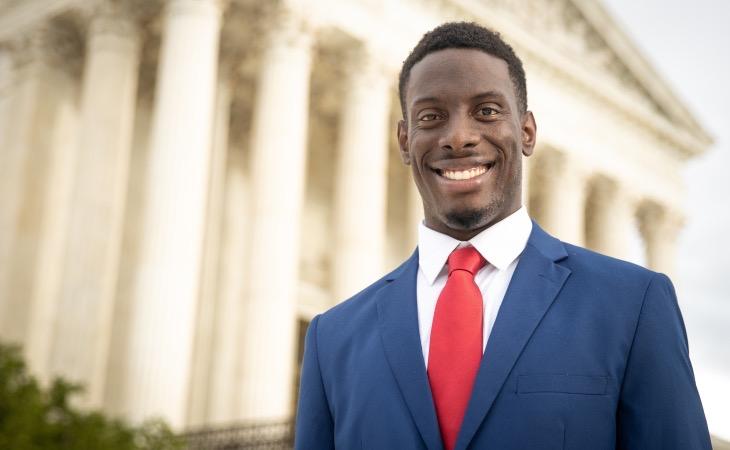Two Christian former college students whose Supreme Court victory allowed them to pursue nominal damages after their right to share their faith on campus was infringed settled their lawsuit in exchange for a payment of more than $800,000 by the college.
As The Epoch Times previously reported, the case goes back to 2016 when Chike Uzuegbunam—then a student at Georgia Gwinnett College, a public college in Lawrenceville, Georgia—was on campus handing out religious literature and sharing his Christian beliefs. A college official stopped him, saying he was breaking school rules by not speaking within the boundaries of an approved “speech zone.”





